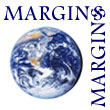

32nd International
Geological Congress
Date: August 20-28, 2004
Location: Congress Center, Fortezza da Basso, Firenze, Italy
Website: 32nd International Geological Congress
Organizers: IGC 32 Organizing Committee
Deadlines: Abstracts before January 10, 2004, Registration, March 31st, 2004The Scientific Program of the 32nd IGC consists of Plenary Lectures, Special Symposia, Topical Symposia, General Symposia, Workshops, Short Courses and Field Trips. The Scientific Program Committee has involved a large community of geoscientists through a call for proposals, which has led to the development of the following program. After the First Circular and ensuing interaction with the scientific community, the program was extensively reorganized.
A few symposia and session titles have been changed or reclassified, several new sessions have been added and a few have been cancelled. As a consequence, the identification numbers have been changed with respect to the First Circular. We thank all individuals and organizations that have contributed with suggestions and helped to organize the Scientific Program of the 32nd IGC. The list of acronyms and corresponding organizations appears in glossary of acronyms .PlenaryLectures
There will be seven Plenary Lectures, given by eminent scientists, on subjects relevant to the main focus of the conference. Among the subjects covered are Geological Hazards and Geo-resources. These lectures are open to all participants and will take place each day at midday in the Plenary Hall.Symposia
Each symposium consists of sessions comprising oral and poster presentations. A special slot has been reserved for poster presentations on the afternoon of each day, after the end of the oral sessions, with the express purpose of focusing attention on this important form of communication. Each of the almost three and fifty hundred sessions planned will be overseen by two or three conveners who, if present, will co-chair the presentations. The conveners of each session will select the oral and poster presentations and maximize participation in the poster sessions, in order to create the best possible scientific program. Generally, sessions have a half-day duration, and comprise eight to ten oral presentations, inclusive of key notes and discussion, where foreseen. Shorter and longer sessions may be scheduled, also in relation to the number of abstracts submitted.The following three types of symposia are planned.
Workshops
The workshops provide an occasion for geoscientists to discuss issues concerning themes of common interest. The themes have been proposed by the conveners. The workshops address specialists interested in new research in various subject areas. Participants with results to share are most welcome to attend. Most workshops will be held at the Congress Center before and after the Congress. One-day workshops will also be held during the Congress. Some workshops may include field excursions.Short Courses
The short courses are an educational and/or technical training opportunity under qualified lecturers. The format includes hands-on activities and practical exercises. Lecturers will illustrate the present status of topics of scientific and technological interest. The short courses are open to those who require specialized information for their own work, or who wish to broaden their general knowledge. Most short courses will be held at the Congress Center, before and after the Congress. One-day short courses will also be held during the Congress. Some short courses may include field excursions.Field Trips
The Mediterranean area offers a complete rock record spanning from the Precambrian to the Holocene, young collisional belts, thick exposed crustal and mantle sections, metamorphic and magmatic rocks, and classic fossil and mineral collecting sites. In the Italian peninsula and surrounding areas the signs of recent tectonic activity, volcanic eruptions, earthquakes, glacial processes, coastal evolution, large gravitational phenomena and floods are carved in the present landscape, providing impressive sights. Field trips also offer the possibility to focus on recent devastating natural hazards and on geological aspects of famous archeological sites such as Pompeii and Paestum. To give the participants in the Congress any possible opportunity to examine these features, a large number of geological field-trips are offered as pre-congress, during-congress and post-congress excursions. One special excursion across the ranges of Central Asia is offered on June/July 2004.
September 17, 2003